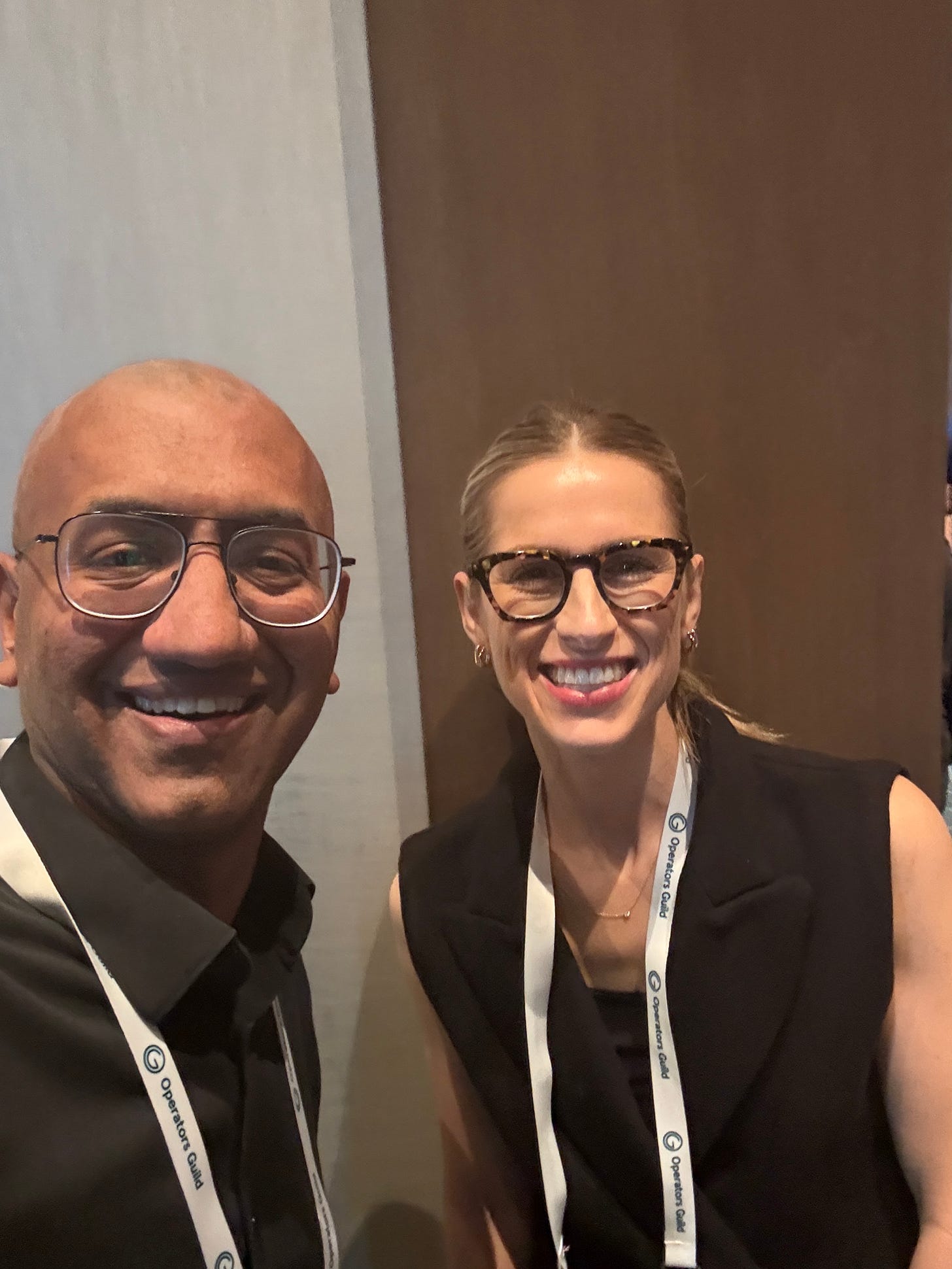At the recent Operator Guild Summit, I had the chance to hear Rachel Nazhand speak on a topic that doesn’t get nearly enough credit—Business Operations. Rachel brings a wealth of experience in scaling operations across Series A to C startups and larger corporate environments, with a strong belief in centralizing ops and using storytelling to drive real change. Her perspective wasn’t just insightful—it was energizing.
As someone who’s built BizOps teams more than once, her talk reaffirmed what I’ve long believed: BizOps isn’t just a support function—it’s a strategic lever that helps a company scale with clarity instead of chaos.
1. From Knowledge to Adaptability
Rachel started by challenging something most of us take for granted—deep expertise as a moat. Her take: functional expertise has a short shelf life in today’s world. What matters more is your team’s ability to learn fast and adapt faster.
We’re not just in a knowledge economy anymore—we’re operating in an adaptive economy. For BizOps, that means hiring for range, not just depth. Think systems thinkers who can jump across finance, GTM, and product — and connect dots in high-ambiguity situations. It reminded me of a hiring lesson I learned early: passion + learning agility > textbook expertise.
2. BizOps Should Evolve with the Company
Rachel offered a great stage-wise breakdown:
Early stage? BizOps is glue. Filling gaps, stitching together insights, and helping teams make sense of the chaos.
Mid-stage? BizOps starts laying tracks—building processes and bringing repeatability to how things run.
Late stage? It becomes the orchestrator—aligning teams, informing strategic bets, and helping the company scale smart.
The takeaway? Don’t copy-paste a BizOps structure from another company. Build for the stage you’re in.
3. Structure Reflects the Pain You’re Solving
Where BizOps reports in your org says a lot about what you expect from them. Under the CEO? You’re solving for change. Under the CFO? Efficiency. Under the CRO? GTM acceleration.
One other thing that struck a chord—Rachel’s reminder that BizOps is not project management. That was a déjà vu moment for me. I’ve had to explain the same before: project management is about executing a known solution, while BizOps is about uncovering the problem and defining the path forward. It’s a subtle but critical distinction.
4. The BizOps Superpowers
Rachel laid out four competencies I loved:
Clarify what really matters
Align cross-functional priorities
Anticipate issues before they escalate
Optimize systems without slowing things down
Yes, they may sound familiar—these are the same muscles we expect from high-performing teams. But here’s the difference: BizOps operationalizes them across the organization. That’s what sets it apart. BizOps doesn’t just support execution—it designs how the company executes at scale.
Final Thought
Rachel’s talk was a reminder that BizOps isn’t about having all the answers. It’s about creating the systems, habits, and conversations that help you ask better questions—and scale smarter.
If you’re navigating your next stage of growth, a well-structured BizOps team might just be your best investment.



